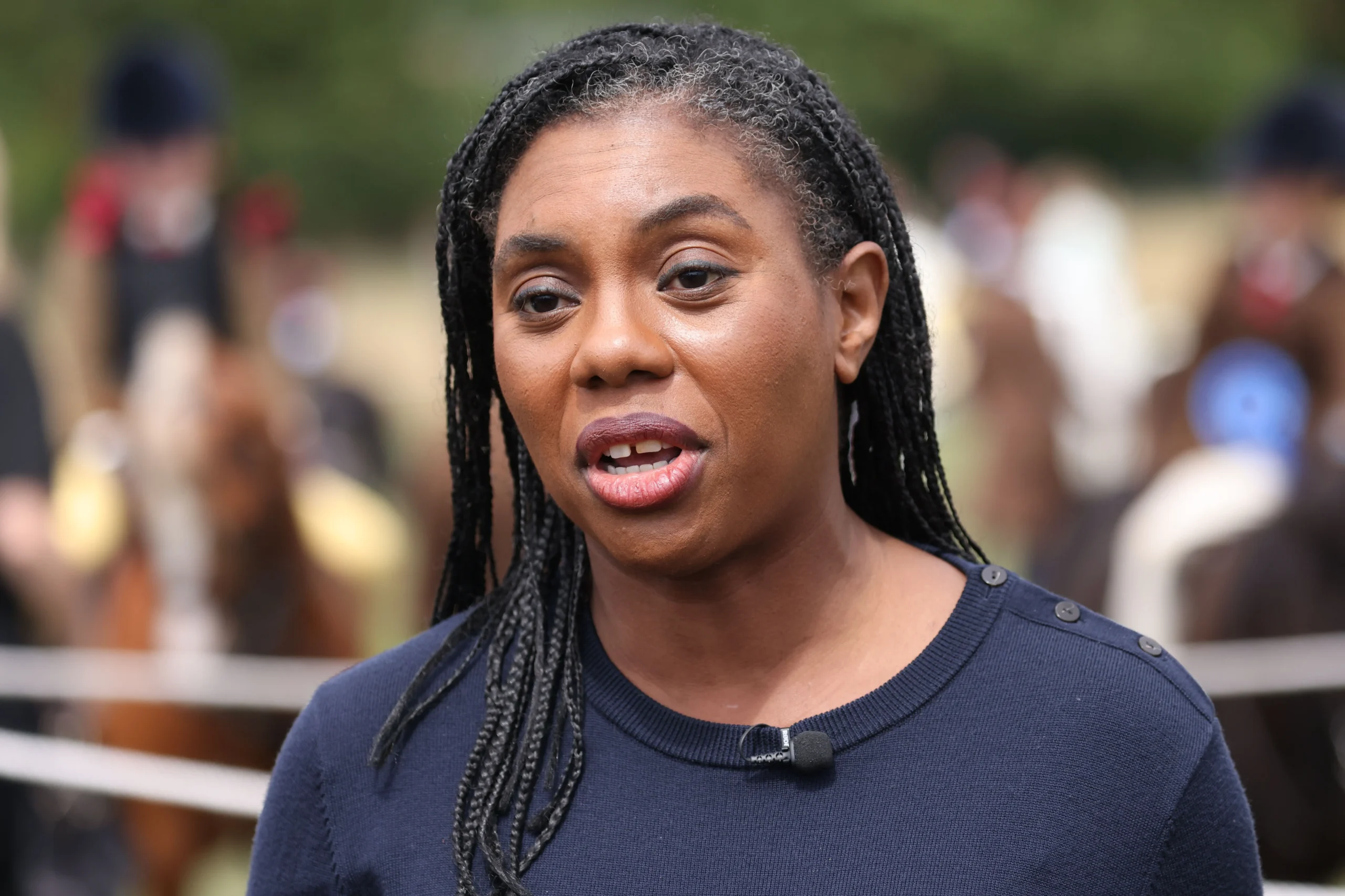British Conservative politician Kemi Badenoch is known for her strong political voice, her unapologetic stances on culture, identity, and economic growth — but recently, she opened up about a deeply personal moment that challenged her entire worldview. In a candid and emotional interview, Badenoch revealed that she “lost faith in God” after learning about the horrific crimes committed by Josef Fritzl.
The admission came during a podcast conversation where she discussed morality, suffering, and how unspeakable evil can shake even the strongest belief systems. Her raw honesty offered a rare glimpse into the emotional life of a politician often known for her tough exterior and intellectual fortitude.
Who is Kemi Badenoch?
A rising star in the Conservative Party, Kemi Badenoch serves as the Secretary of State for Business and Trade in the United Kingdom. She has also served as Minister for Women and Equalities. Known for her anti-woke rhetoric, belief in meritocracy, and defense of British values, Badenoch has become a prominent figure in British politics.
But behind the headlines and debates lies a woman shaped not just by ideology, but by experiences — some personal, some political, and some deeply spiritual.
The Josef Fritzl Case: A Global Horror
In 2008, the world was shaken by the revelation of Josef Fritzl, an Austrian man who had kept his daughter Elisabeth imprisoned in a basement for 24 years, repeatedly raping her and fathering seven children through the abuse. The case exposed not just personal evil, but systemic failures in law enforcement and society at large.
For many, the case was almost too horrific to comprehend — a real-life horror story that shook faith in humanity, institutions, and for some, God.

Kemi Badenoch’s Response to the Fritzl Case
During her interview, Badenoch said:
“When I read about Josef Fritzl and what he did to his daughter, that was the moment I stopped believing in God. I couldn’t reconcile that kind of evil existing with a benevolent creator.”
This was a deeply personal confession. Raised in a Christian household, Badenoch has spoken before about her values and upbringing in both Nigeria and the UK. Faith was always part of her moral compass. But the Fritzl case shattered that framework, causing her to question not only the existence of a higher power but the structure of good and evil itself.
A Crisis of Faith, Not a Rejection of Morality
Importantly, Badenoch clarified that losing faith in God did not equate to a loss of morality or values. In fact, it pushed her toward a more human-centered sense of right and wrong, driven by logic, compassion, and responsibility rather than divine judgment.
“You can live a good and meaningful life without believing in a higher power. What matters is the choices we make — to protect, to speak up, to act with courage.”
Her reflections echo those of many secular humanists and philosophers who argue that ethics can exist independently of religion. Still, for someone raised with faith, such a shift marks a significant emotional and intellectual transformation.
Public Reaction: Empathy, Debate, and Reflection
Badenoch’s comments sparked a wave of public reaction. Many praised her for being vulnerable and honest about such a deeply personal topic — a rare move in politics, where image is often tightly controlled.
Supporters pointed out that she is more approachable since she isn’t afraid to doubt, ask questions, and acknowledge that she is having a spiritual crisis. Others felt her admission would resonate with people who have similarly struggled to make sense of senseless suffering in the world.
Of course, some critics saw it differently.Some contended that, particularly in a nation with a wide range of religious traditions, political leaders ought to refrain from bringing up their own faith—or lack thereof—in public discussions. Others questioned whether such a traumatic event should lead one to lose faith, citing theological arguments around free will and evil.
Why This Matters: Morality, Belief, and Leadership
Kemi Badenoch’s statement matters not because it signals a loss of religion, but because it reflects the emotional and moral weight that public figures carry, often silently. In a world where politicians are expected to project certainty and control, admitting doubt takes courage.
It also invites broader public discussion about:
- How people process extreme suffering or evil,
- Whether belief in God helps or hinders moral reasoning,
- And how leaders shape ethical policy decisions based on personal worldviews.
By tying her loss of faith to an act of real-world horror, Badenoch didn’t just comment on religion — she forced a conversation about how we cope with darkness in a world that doesn’t always offer answers.
FAQs – Kemi Badenoch and the Josef Fritzl Case
Q1: Who is Kemi Badenoch?
Kemi Badenoch is a British Conservative Party politician, currently serving as Secretary of State for Business and Trade. She is also known for her work on equality, cultural debates, and her advocacy of individual responsibility and meritocracy.
Q2: What did she say about the Josef Fritzl case?
Badenoch revealed that learning about the Josef Fritzl case caused her to lose her faith in God, as she could not reconcile such horrific evil with the idea of a loving, omnipotent deity.
Q3: Who is Josef Fritzl?
Josef Fritzl is an Austrian man convicted in 2009 for imprisoning and abusing his daughter Elisabeth for 24 years. He fathered seven children with her, repeatedly raped her, and kept her imprisoned in a cellar. One of the most well-known cases in contemporary criminal history is this one.
Q4: Was Kemi Badenoch religious before this?
Indeed, Badenoch identified as a believer from her early adulthood and was brought up in a Christian home. A major turning point in her spiritual development was the Fritzl case.
Q5: Did this affect her political views?
Badenoch stressed that she still had strong moral convictions, motivated more by human reason and duty than by religious teaching, even if she did not associate her loss of faith with any particular policy.
Q6: How has the public responded?
Public response has been mixed but largely respectful. Many praised her honesty and vulnerability. Others engaged in theological debate, questioning whether such events should shake one’s faith in God.
Q7: Does Badenoch now identify as an atheist or agnostic?
She has not explicitly labeled herself. Based on her comments, she appears to lean toward agnosticism or secular humanism, focusing on personal ethics rather than religious belief.
Final Thoughts
Kemi Badenoch’s admission is more than a personal story — it’s a philosophical moment. It shows how even the most steadfast people can be shaken by the world’s cruelty, and how faith — or the loss of it — often stems not from rebellion, but from deep emotional reckoning.
Whether one agrees with her or not, her courage to speak about her journey invites us all to think more deeply about how we find meaning, morality, and strength — even in the darkest of stories.




